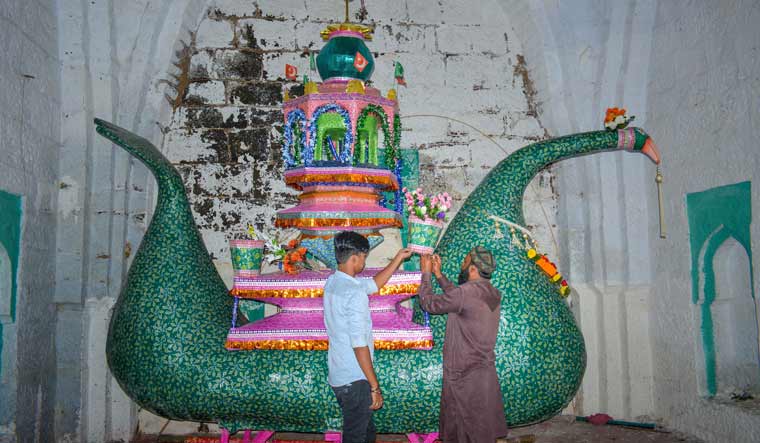A division bench of the Allahabad High Court has dismissed petitions asking for permission to carry out the Tazia procession as part of Muharram.
The order read, “It is with a very heart that in these testing times, it is not possible to lift the prohibition by providing any guidelines for regulating the mourning rituals/practice connected with the 10th day of Muharram. We must hope and pray that God would perceive our restraint in our customary practices, not as a slight, but an act of compassion for our brothers and sisters and give us the opportunity to celebrate all festivals with greater faith and fervor in future. It is only together with co-operation, understanding and support, we as ‘One Nation’, can we emerge stronger in these treacherous times and overcome this season of darkness.”
The dismissal applies to four Public Interest Litigations filed before the court to consider lifting of prohibitions to allow for the ritual of burial of the Tazia—a replica of the tomb of Hussain, the martyred grandson of Prophet Mohammed. The ritual practiced by Shia Muslims is carried out during Muharram—the first month of the Islamic calendar observed as one of mourning.
The petitioners had drawn attention to the permission granted to the Jagannath Yatra in Puri, by the Supreme Court. The prayers had called for similar permissions with suitable precautions that included the participation of only five to 10 people during the procession.
However, the HC observed that the Jagannath Yatra was confined to Puri, while the burial of the Tazia was not specific to a city.
Earlier this month, Maulana Kalbe Jawad, a prominent cleric had termed the ban on Muharram rituals “unconstitutional and illegal” and said that he would be holding majlis (sermons) during Muharram while following COVID-19 protocols. He had also dared the police to arrest him if they thought it fit. He has now appealed that there must be no Tazia processions to respect the court order.
Mohammed Haider, a senior advocate and the mutawalli (caretaker) of the Sibtainabad Imambara told THE WEEK, “We are passing through the most difficult of times where the governmental norms, restricting public movements and number of people permitted to move around are to be taken note of and adhered to in the larger public interest.
“As a member of the Shia community, which is considered to be educated and enlightened, I fully agree with the High Court ruling, restricting the processions and gatherings, aimed at preventing the outbreak, which is spreading like wildfire. I also reiterate what our Holy Prophet opined 1,400 years ago, that ‘When you hear that a plague is in a land, do not enter it and if the plague breaks out in a place while you are in it, do not leave that place’. We are amidst the worst of times, and are therefore required to act sensibly. Hopefully, the pandemic will be over soon and we shall, thereafter, be able to perform the religious obligations like ever before.”
The UP government has banned all religious gatherings till September 30.



